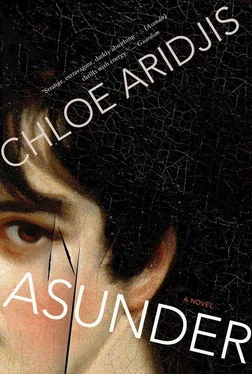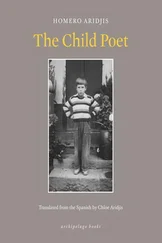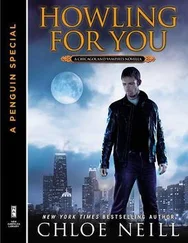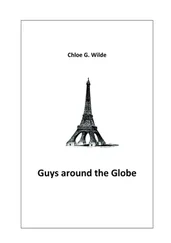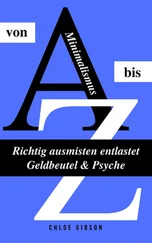To my surprise Daniel remained unperturbed, and assured me nothing would happen. Yet I stayed put until the irksome man had withdrawn his finger and walked off with his son.
Around the corner from the Giotto we came upon the Battle of San Romano , a far more unsettling version than ours at the Gallery. The figure at the centre had eyes like hollows and practically no nose. Together with its rearing black horse, they looked ready to plunge into the dark depths of the museum.
‘Pure Uccello, master of illusion,’ Daniel said, ‘a man nearly driven mad by his quest for perspective.’
As we moved from room to room, stopping every now and then to half contemplate a portrait or landscape, Daniel told me about how this great painter had spent much of his life observing birds and beasts from every angle, reducing muscles and mass to fluid lines, so absorbed in his pursuit of perspective as he sat drawing for hours and hours in his modest house, that he forgot to feed himself as well as Selvaggia, the beautiful thirteen-year-old who had gone to live with him, noticing little more than the inflection lines in her face when she smiled feebly and the diminishing curves of her body, oblivious to the fact she was starving to death, and even once her limbs had gone stiff and she’d stopped blinking, he continued to draw her, still absorbed in his eternal search for the vanishing point.
After wandering through a couple of centuries of painting, Daniel led me to the oldest, coolest and quietest part of the museum. From the centre of the room rose the keep of an original twelfth-century chateau, the earliest foundations, a sign said, of the Louvre itself. We stepped on to a walkway suspended above what was once the moat and walked between walls of unhewn stone. It was easy to envision this section, with only four visitors and not a single guard, as the magical centre of the museum, everything balanced on its massive stone shoulders. The walkway girdled three quarters of the keep and then stopped, the last section unexcavated, an unambiguous punctuation mark, and only in this room was I able to relax a little.
‘Did Uccello really ignore his girlfriend to the extent she starved to death?’ I asked at dinner that night.
‘That’s what they say.’
‘But he loved her?’
‘To him she was a marvel of lines, circles and curves.’
I couldn’t help wondering whether Daniel — if he and I ever had been together — would’ve, in his obsessions, been capable of letting me starve, there in a foreign city where no one would know, as I turned brittle and then stiff in a chair while he scribbled away at his desk.
It was mostly at night that I thought about the troubled couple whose home we were occupying. During the day it was easy to block them out, and I sensed Daniel did too, yet how could we not think of them when thrown into this daily intimacy we’d never experienced in London, even the simple fact of breakfast had to be dealt with, starting the day face to face, and then the question of the bathroom, our toothbrushes side by side, towels too, the leftover moisture from his bath settling into mine.
The next morning, after a strong cup of coffee, I left Daniel at his desk — it made me uncomfortable to see him at work, as if I were coming too close to the act of creation — and set out in a black trilby I had found in the wardrobe. Despite taking the small streets I arrived, in that mysterious tropism one has towards big avenues, at boulevard Saint-Germain. I found a place selling sandwiches, bought one, then searched for a place to eat. I passed several benches, most of them unoccupied, but was deterred by the streams of people, assertive tourists and meandering locals, or perhaps meandering tourists and assertive locals.
Fortunately I didn’t have to look long. Across the street, beside the church of Saint-Germain, I discovered a green intermission: a small triangular park containing tall trees, a bronze head on a pedestal surrounded by pigeons, and a scattering of individuals eating their lunch on benches. The place surpassed my expectations. Yet just as I was stepping through the gate I caught sight, in a corner at the far end and half hidden by a tree, of the back of a clochard peeing in the bushes. I stopped and stared, half fascinated, I admit, by the snag in an otherwise bucolic scene. No one else seemed to notice him or, if they did, no one cared. But I realised I could no longer join them, my decision somehow reinforced by a metal sign in tennis-court green attached to the gate, EN CAS DE TEMPÊTE CE JARDIN SERA FERMÉ . In case of tempest this garden will close, I gathered in my creaky school French, as I ran my fingertips along the smooth border.
In the end I ate while I walked, hardly ideal but I was too timid to sit down somewhere and eat on my own, captive to that irrational behaviour common in foreign cities when you feel everyone is watching when in reality not a soul has noticed your existence. Later that afternoon as I wandered along the Seine an unpleasant sleet began to fall. I would have gone home but didn’t want to interrupt Daniel, who was probably still at work. Yet I also wanted to avoid the anxiety of museums and the awkwardness of entering shops where I knew I wouldn’t buy anything.
I continued onwards, turning into streets at random, the foreignness of the city condensed that day into the curious pods I saw fastened to the walls abutting the river, large metal boxes closed with padlocks, perched in rows like cocoons, and I wondered whether they were lockers for bathers or closed puppet theatres or storage facilities for students before realising they were bouquiniste stalls once the bouquinistes had gone home, the bookshops folded into themselves, their cellophane-wrapped inventories shielded from both dusk and rain.
Daniel and I had stopped once or twice to admire the hanging prints that danced along the cords on windy days, reanimated images of extinct scenes, and all the other flapping inventory pinned down by heavy stones, and I’d even spotted a reproduction of something from our Gallery, a faded traveller whose palette had been drained in another climate, and my heart had skipped a beat.
Over dinner we compared notes. I described my day and Daniel told me how after writing all morning he’d set out late in the afternoon to catch the last snatches of daylight and ended up at Stern, the venerable old stationers in the Passage des Panoramas. But when he arrived the shop was not only closed but entirely empty. There was no one inside yet all the lights were on, the chandeliers casting a glow over the elegant furniture — carved chairs with green upholstery and matching tables, vertical oak shelves, bureaus with glass doors, a paradise of polished wooden floors and panelling.
Lit desk lamps shone on to vacant surfaces, chairs gathered round tables at imaginary meetings, you could almost see the echo of a face in the mirror above the marble mantelpiece flanked by caryatids. He imagined a company of shadows going about its work, shelving papers, customising letterheads, guillotining paper in two with a stroke.
Never had such elegance, and so much polished wood, looked so ghostly. In one window was a small plaque that read ‘Stern Medaille d’Or 1867’. In the next window, a large sign with a telephone number. In the third, a thick black curtain like those in funeral parlours. In fact, not only the stationers but much of the passage felt forsaken, and its ancient skylights gave it a tired aquatic glow. That’s the strange thing about Paris, Daniel concluded, you go in search of its vestigial glory, seeking traces here and there, but apart from the occasional current, the past denies you entry, and so it was that despite all the illumination, the doors of Stern remained closed.
Читать дальше
